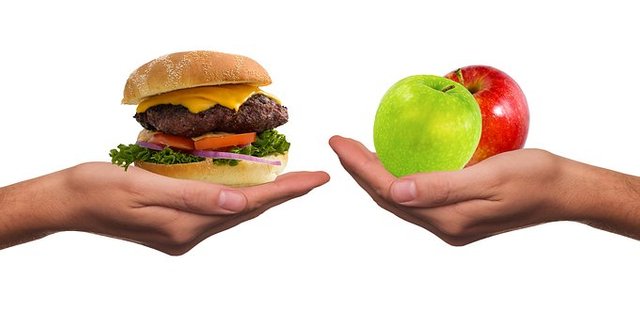Weight is the exact opposite of a grade point average. GPAs drop lightning fast, but they're really difficult to bring back up. Weight, on the other hand, is quite easy to gain and not-so-easy to lose.
Here are four reasons why weight is so finicky:
- Simple math. You need to burn as many calories as you take in, to maintain your weight. Consuming extra calories will result in weight gain. It's easy enough to exceed your calorie needs on a day-to-day basis, it's especially easy to do so when your routine is altered (like during a vacation).
- A pound is a pound is a pound. To gain a pound you need to consume 3,500 extra calories. Over the course of a special dinner out, an extra serving of dessert, and some extra large portion sizes you can reach that 3,500 calorie mark quite easily. To lose a pound, you need a deficit of 3,500 calories. Reducing the calories you eat and burning extra calories through exercise can give you the deficit you need -- but it takes commitment and effort on your part.
- Exercise is weight discriminating. While 3,500 extra calories will lead to a pound of weight gain no matter what size you are, it's easier to burn 3,500 calories when you weigh more. It may not seem fair, but a higher body weight leads to an increased resting metabolic rate, which helps burn more calories. That's why those last five to 10 pounds can seem particularly stubborn.
- Age contributes to weight gain. As we age, metabolism naturally slows. So it becomes easier to gain weight and a little harder to lose it.
It's also good to remember that, while the simple math is accurate, there are other factors that contribute to weight as well. But don't let the challenge get you down.
- Source -
Weight Management: https://foh.psc.gov/Calendar/weight.html

So many people deal with weight problems. I know a lot of people that need to read this article. Thanks for the tips.
Downvoting a post can decrease pending rewards and make it less visible. Common reasons:
Submit
So true. I've battled weight my whole life. Great advice.
Downvoting a post can decrease pending rewards and make it less visible. Common reasons:
Submit
Step on a digital scale. Then, drink tons of water (not too fast) and don't go pee. Step on the scale again. You've gained weight without consuming any calories (or any fat, sugars, carbs, or cholesterol). Go pee and step on the scale again. No calories were either consumed or burned in the making of this weight change.
Salt is another food with zero calories, zero fat, zero sugars, zero carbs, and zero cholesterol that will still make you gain weight, but this one acts much more slowly and will raise your blood pressure too.
So, you don't need to consume any calories to gain weight or to make yourself unhealthy.
Furthermore, while a pound might be 3500 calories, those 3500 calories can take the shape of a massive and jiggly pound of fat or a tight and trim pound of muscle. If the 3500 calories turn into a jiggly pound of fat, future calorie burn rates will be lower than if those calories turn into a trim pound of muscle.
Furthermore, changes in eating and exercising habits can also change metabolism. Eating fewer calories might result in fewer calories being burned by the body.
This is why removing calories from junk food also doesn't make people healthy. It doesn't matter if they make the junk food no-fat, no-sugar, no-carb, and no-calorie. It's still junk food. (Remember salt and high blood pressure?)
Being healthy is not merely about losing weight or eating fewer calories. If you're only thinking about weight, maybe a pound is a pound, a calorie is a calorie, and math is simple. However, for overall health, a pound of muscle is different from a pound of visceral fat, a calorie of whole grains is very different from a calorie of high fructose corn syrup, and we can't even get the right numbers to use in the math formulas.
Downvoting a post can decrease pending rewards and make it less visible. Common reasons:
Submit